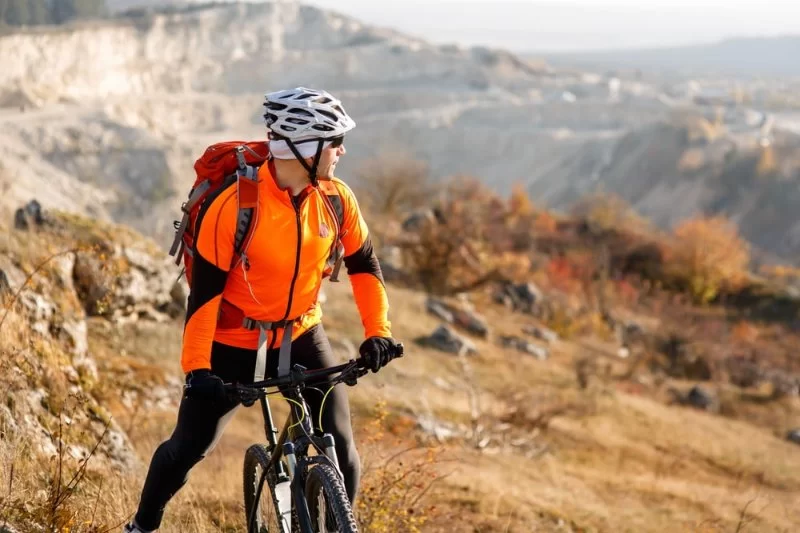Discover the essential gear for mountain biking with a hardtail bike. Learn about protective gear, tools, hydration systems, and expert tips for better performance. Explore trusted gear at Pine Cliff Resort.

- understanding-hardtail-bikes - Understanding hardtail bikes and why they’re a great choice for mountain biking
- protective-gear-for-safety - Protective gear every hardtail mountain biker should wear
- essential-tools-and-maintenance-kits - Tools and maintenance essentials to keep your ride smooth
- hydration-and-carrying-solutions - Staying hydrated and carrying essentials on the trail
- real-rider-story - A real rider’s hardtail adventure and the gear that made it happen
- where-to-find-quality-mountain-bike-gear - Where to get trusted hardtail gear and guidance
1. Understanding hardtail bikes and why they’re a great choice for mountain biking
Hardtail bikes, characterized by a front suspension fork and a rigid rear, offer a responsive and lightweight ride ideal for cross-country and light trail riding. Unlike full-suspension bikes, hardtails demand more from the rider in technical terrain but reward with better power transfer and a connected feel to the trail.
Many riders start with hardtails because of their affordability, low maintenance, and versatility. They're also ideal for riders looking to develop better technique—every bump teaches you something new. That’s why having the right gear becomes essential for enhancing control, safety, and enjoyment.
2. Protective gear every hardtail mountain biker should wear
2.1 Helmets: Your first line of defense
A quality helmet is non-negotiable. For hardtail biking, where terrain feedback is more intense, opt for a mountain bike-specific helmet with extended rear coverage and ventilation. MIPS (Multi-directional Impact Protection System) technology is a smart upgrade to reduce rotational forces in a crash.
2.2 Gloves, eyewear, and body armor
Full-finger gloves improve grip and protect against falls or overgrown trails. Shatterproof sunglasses or MTB goggles protect your eyes from debris. For more aggressive riding, consider lightweight elbow and knee pads—especially on rocky descents or forest trails.
2.3 Footwear that grips and supports
Whether you’re using flat pedals or clipless, the right shoes are crucial. Stiff soles increase pedaling efficiency, while reinforced toe boxes protect from unexpected rock hits. Don’t overlook this—many new riders struggle with sore feet or slips due to poor footwear choices.
3. Tools and maintenance essentials to keep your ride smooth
3.1 Multi-tools and portable pumps
A compact multi-tool with Allen keys, chain breaker, and spoke wrench can save a ride. Pair it with a frame-mounted mini pump or CO₂ inflator for on-the-spot flat fixes. Most trails don’t have cell service, so self-reliance is key.
3.2 Chain lube and cleaning brushes
Hardtails demand attention to chain condition, especially after wet or dusty rides. A small bottle of chain lube and a portable cleaning brush can keep your drivetrain smooth and quiet—essential for long-term performance.
3.3 Saddle bag or tool roll
Store your tools, spare tube, tire levers, and patch kit in a secure saddle bag or roll. Keep it lightweight but prepared. You’ll thank yourself when your tire unexpectedly hisses at mile six.
4. Staying hydrated and carrying essentials on the trail
4.1 Hydration packs vs. bottles
Hydration packs are often preferred for mountain biking, especially on technical trails where reaching for a bottle can be risky. A 1.5–2L pack offers water and storage for snacks, tools, and even a first-aid kit. If you stick with bottles, ensure your frame has mounts and opt for cages that grip tightly.
4.2 Trail nutrition and recovery snacks
Energy gels, protein bars, and electrolyte mixes can keep your performance steady and recovery quicker. Hardtail biking can feel more taxing on the body due to its direct feedback—fueling correctly makes a huge difference, especially on longer loops.
4.3 Packing smart, riding smarter
Use frame bags or handlebar pouches for maps, phones, or small jackets. Balance weight to avoid awkward handling. Don’t forget to prep for weather shifts—lightweight rain gear or windbreakers can be trail-savers.
5. A real rider’s hardtail adventure and the gear that made it happen
Marcus, a mid-level rider from Colorado, recently completed a solo ride along the Monarch Crest Trail using only a hardtail. “People said I was nuts,” he joked. But with the right gear—lightweight pads, a well-stocked saddle roll, and a trusty hydration pack—he not only finished but loved every mile.
His tip? “I learned to ride smoother lines, and my toolkit saved me twice. Once from a loose cleat, once from a puncture. I couldn't have done it without proper prep.” His setup, mostly sourced through Pine Cliff Resort, is now his go-to for weekend challenges.
6. Where to get trusted hardtail gear and guidance
6.1 Choosing the right gear for your trails
Every trail demands different preparation. Rocky, technical rides require more protective gear and aggressive tires. Flow trails let you go lighter. Knowing your terrain helps you pick smarter gear—whether it’s tire width or hydration capacity.
6.2 Trust matters in gear selection
There’s a reason seasoned riders stick to reliable sources. At Pine Cliff Resort, you’ll find expertly curated gear for hardtail mountain bikers, from beginner-friendly helmets to advanced maintenance kits and lightweight hydration setups.
6.3 Building your gear list over time
You don’t need to buy everything at once. Start with the basics—helmet, gloves, tools—then upgrade as you ride more and tackle tougher trails. The key is starting smart and evolving with your needs.
Hawk Woods Park and Campground
3799 Bald Mountain Rd, Auburn Hills, MI 48326, USA
Visit Location PageOak Ridge Campground
4145 Fresno Rd NW, Carrollton, OH 44615, USA
Visit Location Page